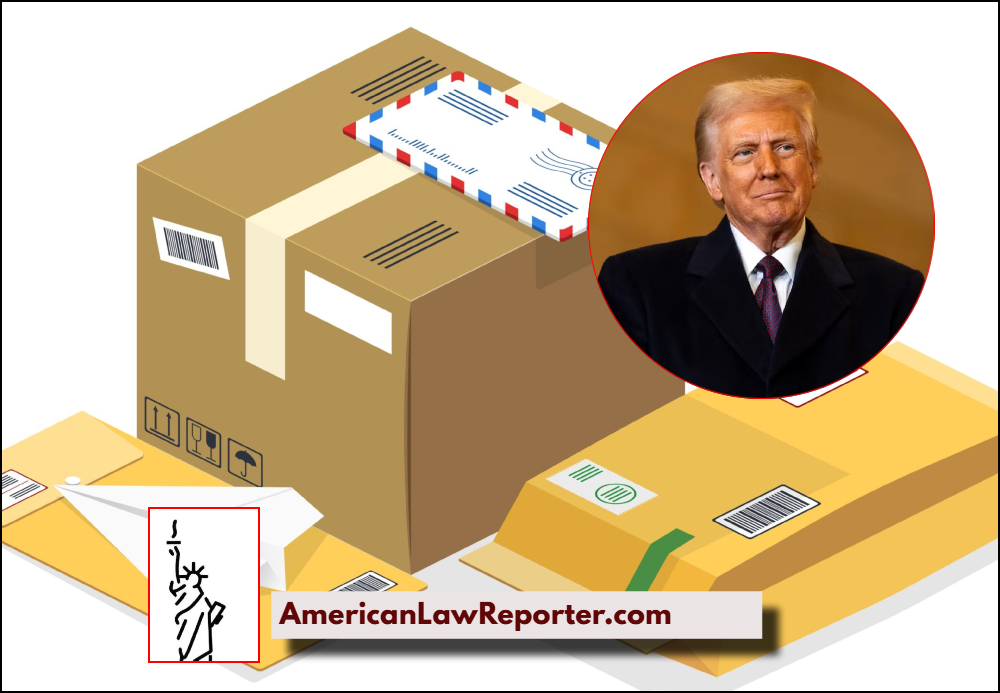Several major European postal operators have temporarily suspended parcel shipments to the United States, citing legal and logistical uncertainty over newly imposed U.S. import duties.
The move underscores the growing legal and commercial fallout from a decree signed by President Donald Trump, which takes effect on August 29 and abolishes the long-standing tax exemption for low-value imports.
The Policy Shift: End of the “De Minimis” Rule

Under the previous U.S. customs regime, international packages valued under $800 were exempt from tariffs, allowing small and medium-sized businesses abroad to ship goods duty-free to American consumers.
Known as the “de minimis” exemption, the provision facilitated an estimated 1.36 billion packages in 2024, carrying goods worth $64.6 billion, according to U.S. Customs data.
As of August 29, however, all such parcels will be subject to a 15% tariff, the same rate levied on higher-value imports from the European Union. The rule applies broadly, affecting everything from consumer goods to small-scale e-commerce shipments.
Europe Responds: Suspensions Across Postal Networks
In response, postal services in Germany, Denmark, Sweden, and Italy announced over the weekend that they had halted most U.S.-bound shipments. France’s La Poste joined on Monday, while Austria’s Österreichische Post and the UK’s Royal Mail confirmed they will stop accepting packages on Tuesday. Other operators, including Spain’s Correos, Belgium’s bpost, and the Nordic carrier PostNord, have also imposed restrictions.
While letter mail and certain low-value personal gifts under €100 will continue to be shipped, operators warn that these items will be subject to additional scrutiny to prevent misuse for commercial purposes.
Industry Concerns: Legal and Practical Ambiguities
Postal operators and logistics firms have cited a lack of clarity in the U.S. rules. Key issues include:
- Who pays the tariffs — the sender, the recipient, or intermediaries.
- What data is required — details on content, value, and origin.
- How data will be transmitted to U.S. Customs in a timely and legally compliant manner.
DHL, Europe’s largest logistics operator and parent company of Deutsche Post, explained that it had “no choice” but to suspend shipments from business customers to the U.S. until legal questions are resolved. Similarly, Poste Italiane and PostNL (Netherlands) stressed that the late confirmation of rules left insufficient time to prepare compliance systems.
La Poste, which typically sends 1.6 million packages to the U.S. annually, said the announcement of new tariff rules came only on August 15, leaving an “extremely limited timeframe to prepare” and with “related documentation still requiring clarification.”
Broader Impact on Businesses and Consumers
Legal analysts suggest that the suspension of postal services highlights more than just higher consumer costs; it reflects a breakdown in transatlantic trade logistics. Small European businesses, which rely heavily on duty-free shipments to access U.S. markets, face disproportionate disruption.
At the consumer level, Americans could see immediate delays, interruptions in e-commerce orders, and the potential for higher prices once shipments resume under the new tariff structure.
The PostEurop association, representing 51 European postal operators, has warned that if no clear compliance framework emerges before the deadline, all its members may be forced to suspend U.S.-bound shipments indefinitely.
Legal and Trade Implications
The suspension underscores a legal dilemma: while the U.S. has the sovereign authority to impose tariffs, the practical mechanisms of enforcement require international cooperation and procedural clarity. Without a functioning collection system in place, trade flows risk paralysis.
Trade lawyers warn that prolonged uncertainty could lead to challenges under World Trade Organization (WTO) rules or prompt retaliatory measures from the European Union, though officials in Brussels have not yet announced a formal response.

